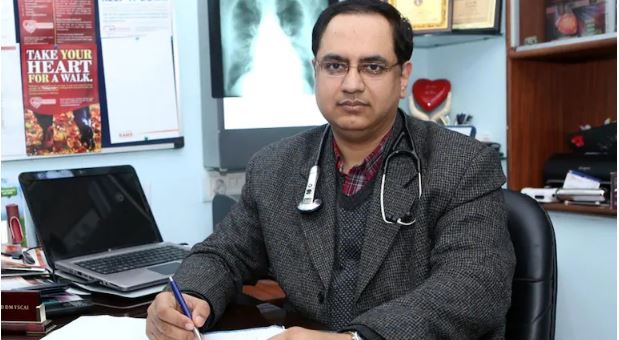
The Trans-catheter Aortic Valve Implantation (TAVI) has been a boon to the elderly and high-risk patients in whom open heart surgery may have adverse consequences.
One of the less known heart conditions among common public is Aortic Valve Stenosis — or Aortic Stenosis — that is narrowing of the heart's aortic valve. Aortic valve is like the exit door of the heart as it controls the blood flow to the body. When this valve gets stenosed, it prevents the valve from opening fully, and thereby reduces or obstructs blood flow from the heart into the main artery (aorta) of the body. The affected person may experience uncomfortable symptoms such as chest pain, shortness of breath, progressive fatigue as the heart becomes weaker and sometimes, they may even pass out. Unfortunately, by the time it is found in many patients, the disease has progressed to an advanced stage.
There is a need to raise awareness on this innovative treatment for aortic stenosis for patients at high risk. The Trans-catheter Aortic Valve Implantation (TAVI) has been a boon to the elderly and high-risk patients in whom open heart surgery may have adverse consequences. TAVI helps in treating elderly patients less invasively, leading to reduced pain, faster, meaningful recovery, more active lifestyle and an overall improved quality of life. Globally, more and more eligible patients are being subjected to this intervention with undisputed advantage of better survival and lower stroke rates.
The Article published in Cardiovascular Diagnosis and Therapy Journal in February, 2020 states that use of TAVR in India has been slowly and steadily rising despite the first procedure being performed in India in 2011. The indications of TAVR have been rapidly expanding since its first introduction as a treatment for AS patients. Initially approved for inoperable and high-risk patients, it received U.S. Food and Drug Administration (FDA) approval for intermediate risk indication in 2017 and most recently, for patients at low surgical risk in 2019
Different kinds of valves are commercially available in the Indian market, including the next-generation self-expanding valve (FDA approved product designed in the US) and balloon expandable valves (FDA approved/indigenous) that are being used worldwide. Recent stories of positive outcomes with TAVI include patients in their 80s and 90s successfully undergoing TAVI with self-expanding valves during the peak of this pandemic.
An 81 year old male with a previously implanted surgical valve that had failed showed symptoms of heart failure. The weakened heart (with only 34% blood being pumped out of heart each time it contracts, against a normal of 55%-70%) came back to life on deployment of a self-expanding valve. An 84 year old male patient of severe Aortic Stenosis with coronary disease experienced frequent episodes of passing out and got full relief from his symptoms after undergoing TAVI with a self-expanding valve.
In all the patients, the TAVI valve was deployed from the artery of the groin with excellent outcomes. With increase in life expectancy, TAVI will likely play a critical role in the future of cardiovascular health of India. Amidst the ongoing COVID-19 pandemic, patients with underlying heart conditions need proper guidance to get timely treatments in hospital. Patients should not delay their regular health check-ups, and must maintain an active, healthy lifestyle while also taking all due precautions to protect themselves from COVID-19.
Source:
https://www.fda.gov/news-events/press-announcements/fda-expands-indication-several-transcatheter-heart-valves-patients-low-risk-death-or-major
Disclaimer: The views and opinions expressed by the doctors are their independent professional judgment and we do not take any responsibility for the accuracy of their views. This should not be considered as a substitute for physician's advice. Please consult your treating physician for more details.





















